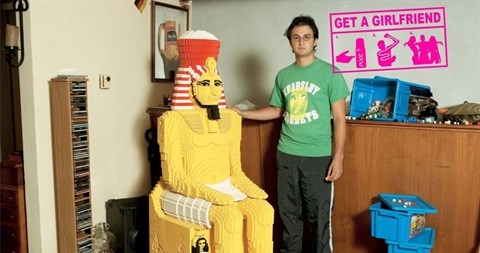
Top stories






More news


Marketing & Media
Ads are coming to AI. Does that really have to be such a bad thing?














Possibly one of the biggest misconceptions about creativity, particularly creative communications, is that it is a Quick Fix. Got a brand that isn't performing? Pump it up with a clever ad that gets a laugh, goes viral, and wins a couple of Loeries and a nod at Cannes. Happy days.
However, the reality is quite different, says Krenski. "Creativity is a long-term investment. It not only requires intense market research prior to execution, which takes time, but it also demands attention to detail during execution, which takes more time and then incredible patience after execution, because the results are not instantaneous. More time. More patience."
"In the fast-paced world in which we live, in which instant gratification is the norm, it is hard to look and act long-term. But it is crucial to the creative process, and to business success."
He ought to know. Over the course of his career, Krenski has not only led his creative teams to multiple podium appearances, but also his marketing teams through sustained brand and business growth.
Just recently, think the recent Johnnie Walker campaigns, which have catapulted the brand into South Africa's favourite spirit over the past couple of years; the launching of Smirnoff Ice Double Black which took this brand from nowhere to the third-biggest brand in the Ready To Drink category, and the recent repositioning of J&B, and Bells.
It is for this reason that he has been chosen as the Creative Circle's second Champion of Creativity for 2015; in recognition of his unwavering belief in the power of creativity to create bottom line business success.
"The literally thousands of stimuli that consumers are subjected to each day in our increasingly digital, multi-channel world means that brand engagement and choice is almost always at a subconscious level, and biased by an often emotional, instinctive and automatic set of responses to help them manage their world.
"Great creativity taps into the need for our work to be brilliantly distinctive and culturally relevant in order to influence and change consumer behaviour over time."
But the trick to making creativity work lies in understanding that while great creativity has the potential to change consumer behaviour, this change does not happen overnight.
"I have seen so many great communication campaigns stall before they get a chance to gain enough altitude, because as marketers we have not fought hard enough or been brave enough to convince senior leadership to stay the course."
Human behaviour is largely habit and instinct and it is hard to change a habit - even in the face of compelling rational and emotional arguments. It takes time. And patience. And a good dose of courage, particularly when the board of directors is asking about the return on marketing investment.
"The problem is not that company leadership demands a return on investment; we should all demand - and expect - a return on marketing investment. The problem is that too many of us expect it too soon," says Krenski.
This is one of the reasons why so many marketing departments have started to rely on Quick Fixes - short-term promotions that create a spike in sales to reassure senior leadership, but do not always add to overall brand development.
In fact, these short-term, quick fixes are often produced at the expense of real, long-term brand development campaigns, eating into budgets that are already under strain and undermining the value of real brand-building investment.

And this is the real heart of the matter. Faced with a series of campaigns that create short-term spikes but no long-term gains, it is no wonder that business leaders are beginning to lose their faith the power of creativity.
"As a consequence marketing and advertising is often viewed as an expense and not an investment - and that's a dangerous category on the budget sheet."
The trick, says Krenski, lies in getting everyone on the same side. "Advertising agencies often underestimate how badly clients want to approve potentially great creative work, but the problem is that we can't do it without compelling reason. Clients need to see that the agency has not only a tangible understanding of where the brand is at, but also where it needs to be - and how the work in question is going to take the brand there.
"In short: agencies need to be able to rationalise the emotional response they are hoping to elicit with the proposed creative idea, because that is exactly what consumers do."
So how do you know when you have the long-term stuff right? When to stay the course?
"Ironically, having just said that nothing happens overnight, when you get it right, you get the feedback pretty quickly and when you get it wrong, that comes back pretty fast too - often in the form of complete silence!"
That is the one upside of operating in this fast-paced environment. Even though it still takes time to change habits, it takes very little time to share your views on Facebook!
Krenski, however, warns about basing any real decisions on knee-jerk reactions on social media platforms. Although sites such as Facebook can provide a snapshot view of how campaigns are performing, there is a wide variety of sophisticated measuring tools that should be employed alongside every marketing campaign.
"There are so many elements to modern marketing campaigns, it is critical to find out which parts are working and which aren't - and then make the necessary adjustments, without necessarily defaulting to changing the course of the entire campaign."
Again, this takes time. And patience. And it requires the team to have the courage of their convictions.
Krenski concludes, "Marketing and creativity and our improved understanding of human brain functioning is joined at the hip. When the emotional response elicited by great creative work is reinforced by positive rational justification after the fact, that's when the magic happens."